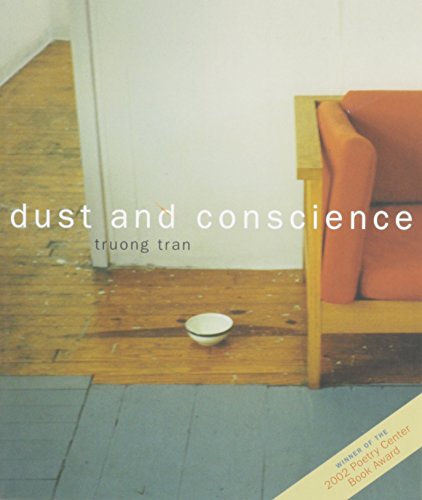
Photo by Max Braun (San Francisco, CA)
“You’re nearly thirty-four and you still live with your grandmother.”
This is the first thing you think as you crawl out of bed, the noonday sun beginning to warm the room. A breeze pulls little eddies of air into circulation, stirred by all the vague pressures like heat and the density of pollution. The smell of depression-sweat and rotten fruit floats around, but you don’t gag like you used to.
You haven’t had clean clothes for a while, just a gradient of filthiness. The underwear that smells the least gets put on, the shirt and sweat pants feel dusty. You feel dusty. This is probably because of how little you move nowadays, you think. That crippled little Honda travels a hundred miles a day, but you demand a medal for shifting your spine straight for three minutes.
You manage to locate and put on all of your clothes by touch and smell, not opening your eyes or bothering to rise from your bed. You swim from place to place amidst the blankets, rolling, rolling, a blind fetus, dumb hands grasping.
In middle school you ran a science experiment to prove that a rolling stone grows moss. You were successful and the judges noted your pride over the moss which had sprouted, although it had been stunted and ingrown. You were certain that humanity would be forever changed by the philosophical significance of this discovery, and your poor mother was forced to pretend to be the president so you could practice your handshake. If the grip was flawless, you thought, you might be able to get a Presidential Medal of Arts, on top of the Doctorate for Science you expected, of which genre you were unsure.
You were suspended with the threat of expulsion when you ripped up the honorable mention certificate onstage. You might have waited until you were alone if you hadn’t noticed that on the bottom of the certificate it read, “Most Comedic Experiment.”
The apology you wrote wasn’t read. The school’s receptionist assured your mom that the letter had been placed on the principal’s desk. During the drive on the first day back to school you banked on the idea that at some point the principal would finally pick up the letter, and upon reading said letter he would know regret. Not the preferred soap opera tears, but at least a quiet, dignified acknowledgement.
As weeks turned into years, you daydreamed heavily when you were stressed or exhausted, often about the letter, still sitting there on the desk and burning a hole through until it became an ingrained part of the table, so that even if He had wanted to He wouldn’t be able to read or remove it. You fantasized that as days grew to years the letter would drive the man mad, and he would try to scratch it away like a creature possessed by God or meth, but it would never go away…
When you ascend the loose basement steps and push open the upward slanted potato cellar doors the sun glares into your dry eyes. You’re blinded but you know the distance, pace and heading needed. In the kitchen is your grandmother.
You have no idea how she said it even as she’s saying it, but you realize she’s demanding you clean the dishes just well enough to yell back at her. The whole world’s buzzing, but she’s roaring. You tell her to shove it and she locks the door as you walk out. It’s time to leave this world, you think, in a puff of smoke instead of blood in the bathtub.
Something about the way one lobe is slipping over another lets you know the time has come. Like stone plates floating on lava, your brain’s folding like mountains, bending into Himalayan ridges directly over the temples you’re fervently trying to massage, and you’re convinced immediately that the only proper response to this sensation is to follow the metaphor to its end. But the you that you were still is. You seek eruption.
Salvia to prove I’m an island, you say, and DMT to show me the sea. You are proud of your metaphors, your rhymes, plaster adages, and they help you excuse yourself from the serious nature of logical action.
You are starkly aware that once you have smoked one, you will be unable to move, let alone coordinate hands and mouth and eyes well enough to smoke the other and you are keenly certain that there is nothing to be done but to smoke both at once. Conceivably an IV would work too, but Hopper the Aptly Named was out of town and you know better than to raid a hospital for medical equipment.
Later it will be obvious that the smartest thing you had done thus far in your life was to find a quiet place far away from human existence to conduct this experiment.
Melted and reformed with vague outlines, you stand in front of your grandmother’s house.
You live there but it’s not your home, you think in the dark silence. It’s pre-dawn, the moment before the world begins to breathe loudly again, so you exhale and close your eyes and listen to the wind whispering on the concrete.
Tears fall as you walk into the kitchen. The glass on your shirt and the blood on your hand tells you that you must have broken in through a window, but you don’t remember having done it. You can’t hear anything against the roar in your head, suddenly sure this is the magnified sound of thick blood rubbing against the walls of your veins. You can’t walk straight, and all you see is red, but you know the correct direction, speed, heading.
Something’s hunting you, but you can’t see it and everywhere around you is filled with the roar of your body’s blood. You don’t know from which direction the predator is approaching from, but you’re sure there is a way to defeat it.
The dishes! Frightened, you leap at the things, slapping the water on and clawing at the soap dispenser.
“I’m sorry,” you say amidst tears, but you can’t hear yourself speak. You continue. “I’m sorry, I’m sorry, please let me live,” because you were certain that if you could finish the dishes in time that God and your grandmother would let you come back to life, that decades and memories would be stripped away and you could try it all again.
The grease sloughed away under the pressure of your soap-soaked fingers, and you could feel the roar dull down in sections. Members of the orchestra were being cut away one by one, and you knew that if you could just finish every last dish that your wish would be granted, partially at least, and the worst parts of you would just coagulate and fall away.
As you raise the last spoon, the very last article in the sink, your hand trembles and the orchestra holds its song to a whisper, and you smile and your eyes and nose leaked in sickly joy, the joy of knowing that even the sickest creatures can be healed. You raise it above your head in reverence and are about to close you eyes in fevered bliss when you hear a click and the lights turn on. You swivel, spoon still raised, to see your grandmother standing with one hand on the light switch and another hand on a small handgun pointed at your chest. At least, she looks like your grandmother, but you are certainly unsure if it is her or an imposter, and the look on her face has not passed into recognition and you doubt it ever will.
You are murmuring things resembling words of gratitude and apology when red and blue flashing lights grace the evening darkness, but your mind is turned inwards, searching and observing. In a quiet flash of red you’re thousands of miles away, a volunteer after catastrophe picking up pieces of broken lives and muttering about the mess before you set the pieces back down, exactly where the storm has decided they must be.

